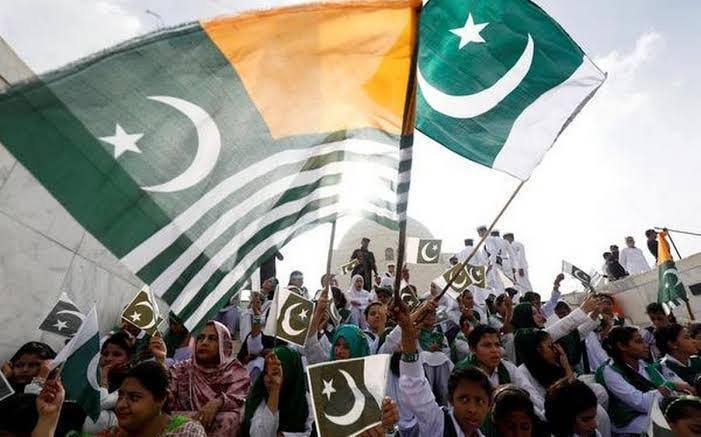Kashmir – Accession to Pakistan Day, shed light on the illegal Indian occupation of Jammu and Kashmir, and highlight the alleged human rights violations perpetrated by Indian forces in the region. To understand the Kashmir dispute, we must consider its historical context. After the partition of British India in 1947, the princely states were given the choice to accede to either India or Pakistan. The state of Jammu and Kashmir, with a Muslim majority population, was ruled by a Hindu Maharaja, Hari Singh. Despite the majority’s inclination to join Pakistan, the Maharaja signed the Instrument of Accession with India, leading to a controversial situation.
Observed every year on July 19th, Kashmir – Accession to Pakistan Day commemorates the historic demand for the region’s accession to Pakistan. As per the understanding behind the Partition Plan, the Princely States were free to accede to either of the two newly established countries. The decision of 19th July 1947 was a testimony to the fact that the people of Kashmir had linked their future with Pakistan. They took the decision of joining Pakistan to protect their political religious, social, cultural and economic rights, as they were well aware of their fate under Hindus who had deep-seated animosity for Muslims in Jammu and Kashmir.
India’s presence in Jammu and Kashmir constitutes an illegal occupation. And adding insult to injury the barbaric Indian government has been involved in severe human rights violation posing the threat of an impending genocide. After the Indian fanatic Prime Minister Narendra Modi—the leader of the extremist ruling party BJP came to power in 2014—he took various drastic steps such as abrogation of the special status of the disputed territory of the Indian Illegally Occupied Jammu and Kashmir (IIOJK), and revocation of articles 35A and 370 of the Constitution—bifurcation of the IIOJK into two territories to be ruled directly by New Delhi. He also imposed a lockdown there and ordered the deployment of more than 900,000 military troops who have martyred thousands of the innocent Kashmiris through brutal tactics, amendments of the law, and by allowing Indian citizens to buy land in the IIOJK and issuance of domicile certificates to more than 800,000 non-Kashmiris.
Indian forces have been taking advantage of various draconian laws such as Armed Forces Special Powers Act (AFSPA), the Public Safety Act (PSA) etc. in martyring the Kashmiri people, and for arbitrarily arresting any individual for an indefinite period. The grave human rights violations taking place in IIOJK have been called out by the UNO, Human Rights Watch, Amnesty International and various other rights groups.
Reports of human rights abuses in Indian-Illegally Occupied Jammu and Kashmir (IIOJ&K) have garnered significant global attention. These allegations include extrajudicial killings, enforced disappearances, torture, arbitrary arrests, and sexual violence perpetrated by Indian security forces. Human rights organizations have called for independent investigations and the prosecution of those responsible for such violations.
The Kashmir dispute has drawn attention from the international community, with various actors advocating for a peaceful resolution. The United Nations has consistently called for a resolution through dialogue, urging both India to engage in meaningful negotiations and stop the HRVs on immediate basis. Multiple resolutions and UN Security Council discussions have emphasized the need to respect the will of Kashmiri people as a key component of any solution.
Nevertheless, each year, on the 19th of July, Kashmiris, along with their counterparts in Pakistan and across the globe, mark the Accession to Pakistan Day. This day serves as a remembrance and reaffirmation of their unwavering dedication to fighting for their rightful self-determination, as acknowledged by the United Nations resolutions. The objective is to achieve liberation from what they perceive as an illegal Indian occupation of their region.







